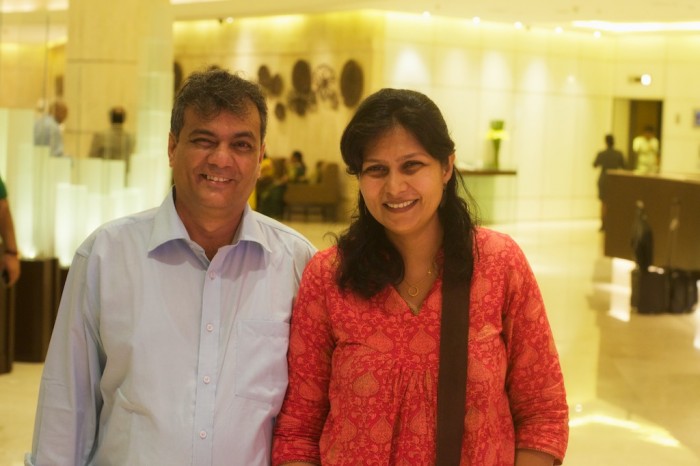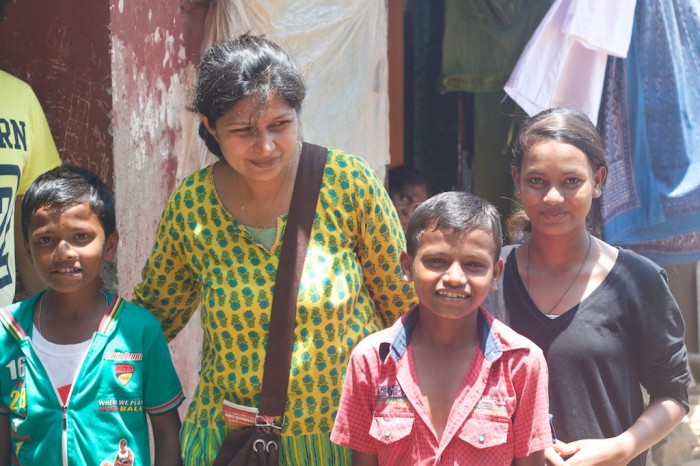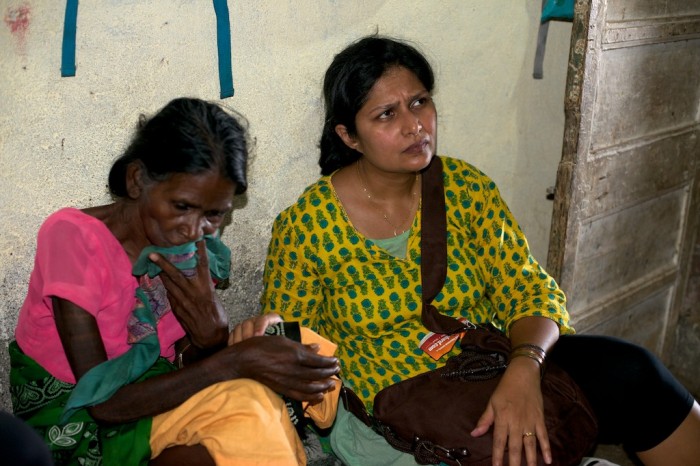Gia and Aun

Her childhood was anything but stable. Gia’s dad came from affluent Bollywood and all that implies. Her parents ran away and had a court marriage when they became pregnant with Gia, considered aborting her. Gia was delivered into a family with intense clashed between her mom’s catholic family and her dad’s muslim background. Neither side of the family accepting of the marriage or welcoming of Gia. Even as a toddler, Gia remembers the carousing, drinking, orgies, gambling and fast living in her home that were the backdrop for her childhood.
From the ripe age of 4, Gia remembers feeling demonic presence in the house. Her fear would intensify whenever the muslim call of prayer would take place. When she was 5 years old, Gia remembers standing at the window when the call for prayer went up. She remembers crying out “I want to know the truth. I want to know the Truth”. At that moment, she had a vision of Jesus standing beside her and the fear was washed away. “I understood immediately that there was power in the name of Jesus. Not in the Koran. Not in Islam. Not in Allah.” For the first time that night, she had no fear of the dark and sensed the presence of the Holy Spirit with her.
And while she carried Truth with her, Gia’s life was about to go from bad to worse. At 6 years old, Gia was thrown out of the house by her father. Her mom, finally tiring of his chasing after other women, walked out on the family. The society places value on boys over girls, so Gia’s dad kept Gia’s little brother and turned her out on the street telling her to go find her mother. “I felt no fear because I knew Jesus was with me. I felt joy and freedom to follow Jesus with no Islam in my life”.
Indian kids grow up with a kind of street-smart that is inconceivable to us in the west. Gia found her mom and lived with her. When her mom got a job teaching at a Christian boarding school, Gia was provided with the opportunity to get a Christian education.
As a young adult, Gia met her future husband Aun. Her dream of a white wedding in a church was not an option. Aun at this time was a Bohra Muslim and it didn’t take long for their unequally yolked religions to wreak havoc on their marriage.
Gia laments that she had two abortions during this time. Not wanting to bring children into the mess of her marriage, she was deceived into thinking that she was protecting her babies by ending their lives. And yet, even with so much devastation, broken relationships and woundedness, God had a plan for redemption and to use Gia’s testimony for good in her life and for Gods glory!
Desiring to honor God with her marriage even as bad as it was, Gia prayed fervently for her husband, fasting and asking God to bring him to Himself. Gia says “I learned to be quiet and just pray”. Humbly and with his permission, Gia would pray for him when he had ulcers and migraines….and immediately he would be healed. In time, Aun committed his life to the Lord and God blessed them with 3 children, Nathaniel, Nathan and Abigail.

Gia ministering to slum kids in Bandra
Aun and Gia moved 17 times in 25 years of marriage – evangelizing neighborhoods wherever they went. 5 years ago, they were introduced to Saturation Church Planting. Before this time, their frame of reference for church planting was constructing a building….which didn’t resonate with their hearts. With tears in her eyes, Gia shared how influential SCP has been to them to be able to equip their people with the values of intimacy with God and how to use their giftings and grace story. She describes it as transformational.
“SCP brought words to our doings” says Aun.
They elaborated that SCP provided authentic relationships with leadership who offered direction and mentoring and a safe place to grow.
The concept of “church planting” became transformed lives for Christ rather than a constructed buildings to gather people.

Praying for healing for a 57 year old invalid
Out of this home, God has used these willing vessels as key instruments to see his Church flourish. Aun and Gia, knowing that travel is impossible for the people in the Bandra slums in Mumbai, have positioned themselves among those people. They live on the outskirts of the slums where they can daily interact with these people and minister to them. From their congregation that meets in a shack down a sketchy alleyway, they have raised up women and men who have gone back to their slums and planted churches. Additionally, these passionate believers have taken Christ back to their villages of origin and seen them evangelized for Christ.



